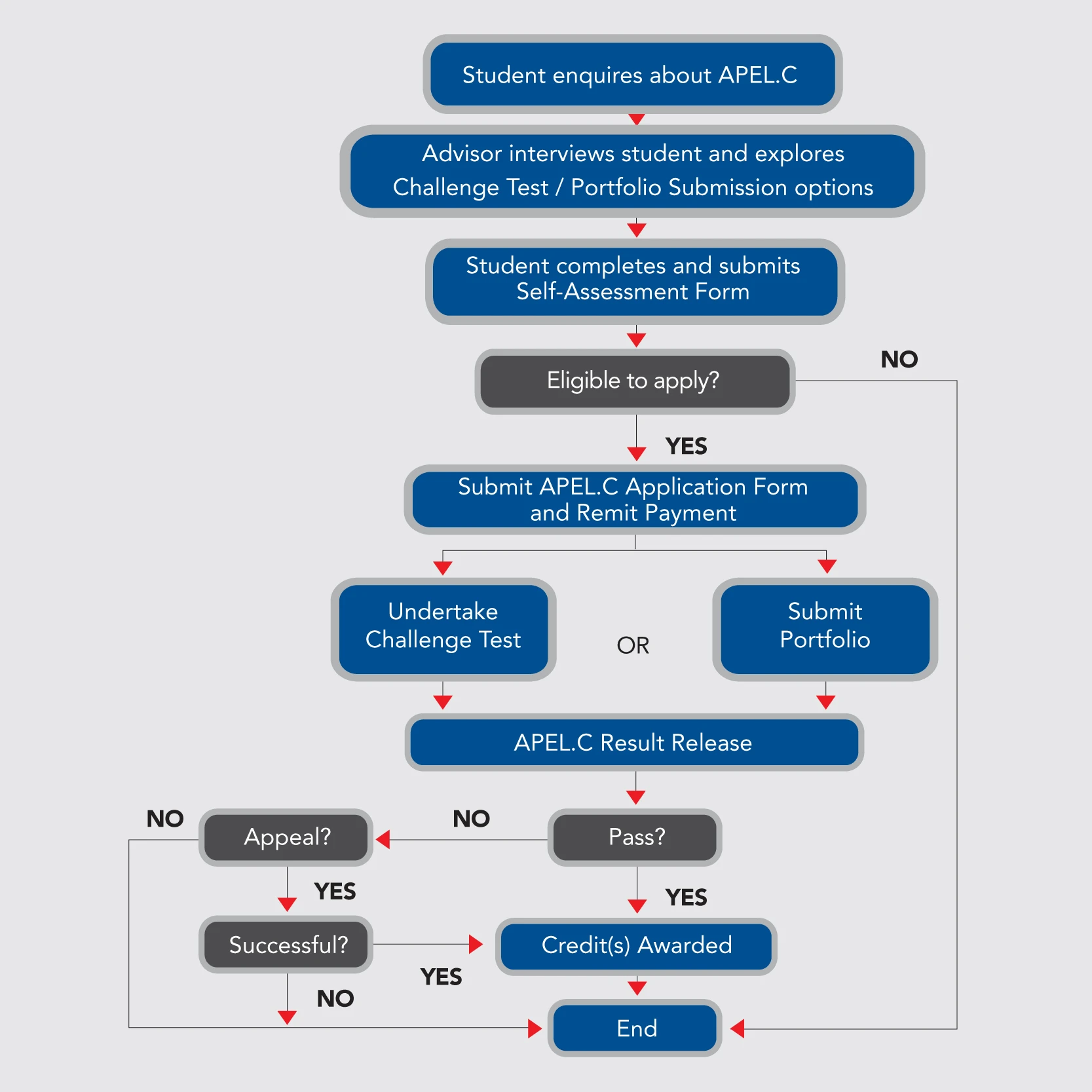Level up to an undergraduate or postgraduate degree with just your work experience.
Accreditation of Prior Experiential Learning (APEL) provides an alternative pathway for adults who lack formal education to leverage their experience for career development. Through APEL, they can gain access to undergraduate or postgraduate programmes (APEL.A), or to shorten their study duration (APEL.C).
The systematic process identifies, documents, and assesses prior experiential learning from the aspects of knowledge, skills, and attitudes. This determines the extent to which an individual has achieved the desired learning outcomes, for their goal of accessing a programme of study and/or award of credits.
.jpg/jcr:content/renditions/cq5dam.web.1241.1242.webp)
